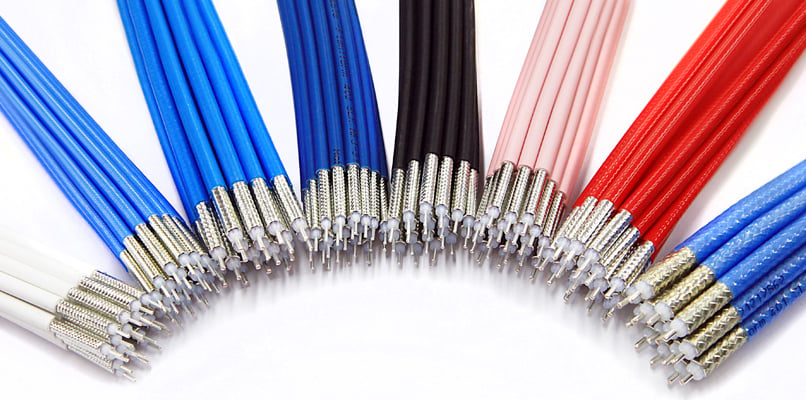Custom cables
With over 30 standard insulation and jacket materials and a wide range of approvals and manufacturing capabilities, we work closely with our customers to find smart solutions that match their application and budget.
If you’re looking for a high-temperature material combined with strong electrical resistance and mechanical properties, PTFE is usually the go-to choice.

Polytetrafluoroethylene (PTFE) is a robust fluorocarbon polymer (plastic) material that’s commonly used to insulate cables to improve performance for demanding applications.
It’s also a very stable material – meaning that if you put it in a vacuum it has an extremely low loss of residue and won’t give off any gasses that could potentially transfer to other instruments. It’s also great for things like medical implants – as even if it ends up inside your body somehow, it won’t decompose or give off any nasty chemicals.
PTFE is commonly used in cables due its superb fire, smoke and chemical resistance properties. It also has the best electrical properties and the widest temperature range of any plastic material – being able to withstand everything from -200ºC up to +260ºC and even up to +400ºC for a short length of time.
Most people know PTFE for its thin, non-stick properties – features which offer great benefits in wires and cables. Small, thin wires and PTFE tapes allow compact design with minimal friction between components and layers – making PTFE ideal for reducing the footprint of our cables while still improving flexibility.
PTFE is a versatile material that benefits many applications, especially in ultra-demanding environments. It’s normally used to create insulation and sheathing components of a cable.
The number one use is in coaxial cables thanks to its high temperature resistance (which means you can transmit high power) and very strong electrical capabilities (which means you have very low losses when you transmit high signals). The second largest use is in insulated wires for places where you need high-temperature, chemically resistant wire, for example in sensors, cars, and chemical tanks. It’s also perfect for use in aerospace applications due it’s superb low-temperature properties.
At Habia, we can supply PTFE as extruded material, as demonstrated in our Flexiform coaxial cable range. It can also be produced as a tape-wrapped and heat sintered product, allowing for bigger sizes and jackets as seen in our BS3G210 signal cables, which have PTFE cores and sheaths.
At Habia, we were one of the first companies in Europe to use PTFE for cables and have industry-leading expertise in designing and developing cables using PTFE. It’s often a core material in our custom cable solutions, but it can also be found in our standard products, including: